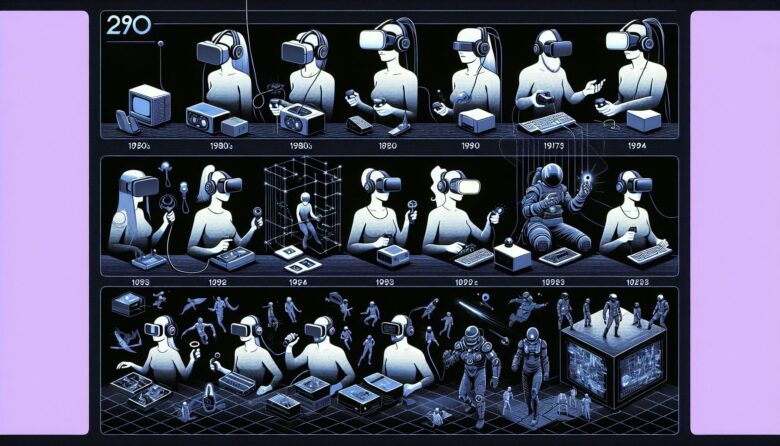Virtual reality (VR) has revolutionized the gaming industry in recent years, transforming the way we interact and experience digital entertainment. From clunky headsets and limited experiences to immersive worlds and captivating gameplay, the evolution of VR gaming has been nothing short of astounding. In this article, we will delve into the history, advancements, and future prospects of virtual reality in gaming.
History of Virtual Reality Gaming
The foundations of virtual reality gaming can be traced back to the late 20th century. The idea of stepping into a computer-generated 3D environment was first introduced in the 1960s by computer scientist Ivan Sutherland, who developed a head-mounted display. However, due to technological limitations at the time, true VR gaming remained elusive.
Fast forward to the 1990s, when Nintendo attempted to bring virtual reality to the masses with the Virtual Boy. Despite the initial excitement, the console failed to deliver the promised experience, as its red monochrome display caused discomfort and limited immersion.
Advancements in VR Technology
The early failures of virtual reality gaming did not deter researchers and developers from pursuing the dream of achieving true immersion. In the 2010s, breakthroughs in technology opened new doors for VR gaming enthusiasts. The release of the Oculus Rift in 2012 marked a significant milestone, offering a more comfortable and realistic VR experience. This was followed by other major players, such as HTC Vive and PlayStation VR, entering the market.
The advancements in VR tech have not only enhanced visual fidelity but have also improved tracking and motion controls. Thanks to precise head and hand tracking, players can interact with virtual objects as though they were real, further blurring the lines between the digital and physical worlds. Additionally, haptic feedback systems have been implemented to provide tactile sensations, adding yet another layer of immersion.
VR Gaming: Beyond the Solo Experience
In the early days, VR gaming was primarily a solitary experience, with players immersing themselves in virtual worlds away from the real one. However, in recent times, there has been a shift towards social VR experiences. Games like “VRChat” and “Rec Room” have gained popularity for allowing players to hang out, socialize, and cooperatively solve challenges in virtual environments.
Furthermore, VR multiplayer games are on the rise, enhancing the competitive aspect of gaming. Players can now face off against friends and strangers in intense battles within immersive, VR-specific arenas. Racing, shooting, and sports games have all embraced VR to provide players with an unparalleled level of realism and thrill.
The Future of Virtual Reality Gaming
As VR technology continues to advance, the future of virtual reality gaming holds enormous potential. Apart from improved visual fidelity and realistic haptic feedback, the development of wireless VR headsets and enhanced mobility is a promising prospect. Players will have more freedom of movement, untethered from bulky cables, and be able to explore virtual realms without restrictions.
Additionally, advancements in AI and machine learning will bring life-like NPCs (non-player characters) to the virtual world. Smarter and more interactive NPCs will create more dynamic and engaging gameplay, blurring the line between human and artificial intelligence even further.
Another exciting aspect of the future of VR gaming is the integration of other emerging technologies. Augmented reality (AR) and virtual reality (VR) could merge to create mixed reality (MR), where real-world elements blend seamlessly with digital experiences. This combination could open up entirely new genres and possibilities for interactive storytelling and immersive gameplay.
In conclusion, virtual reality gaming has come a long way since its inception. Advancements in technology have paved the way for more immersive experiences, expanding the horizons of gaming as we know it. With the industry showing no signs of slowing down, the future of virtual reality gaming holds exciting and limitless possibilities. Who knows what wonders await us in the ever-evolving world of virtual reality gaming?


